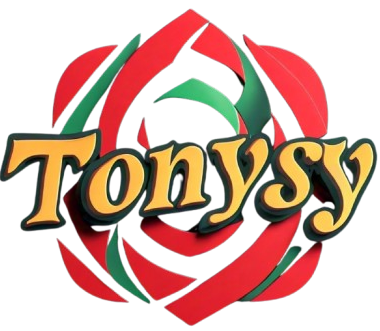Michael Hart thought about electronic books (digital books) back in 1971. Most savants concur that throughout the entire existence of information and grant, digital books are basically as significant as the Gutenberg press, created five centuries prior. Many would agree that that they comprise a far bigger quantum jump. Instead of their print reciprocals, digital books are public merchandise: don’t cost near anything to create, recreate, and scatter. Anybody with admittance to negligible innovation or even the most seasoned PCs can peruse digital books.
Hart laid out Venture Gutenberg – a storehouse of https://rampup.xyz/ a huge number of public space texts, unreservedly accessible on the web. It is the biggest and generally complete of its sort and has generated various imitators, emulators, and mirror site. digital books turned into a standard thing with goliath business undertakings – from Microsoft through Yippee and Amazon to research – getting involved.
“Now that digital books are becoming standard, the monster business ventures, for example, Google, Hurray, Microsoft, Amazon and Arbitrary House are endeavoring to co-select the digital book world from its ‘Limitless dispersion’ beginning to the old’Limited Appropriation’ worldview of the normal field-tested strategy.” – says Hart.
The Business
1. As the one who spearheaded digital books, what is your opinion about Google Print Library, MSN Book Search, Wikibooks, and Yippee’s Open Substance Coalition? Do you feel justified – or treacherously disregarded?
A. In reality both, and completely in both cases.Each time an association professes to have designed digital books or eLibraries, I feel both justified and disregarded, not that both of these is new.However, justification, as far as I might be concerned, comes from the base up, not the top down.Project Gutenberg is the ideal illustration of a “grass roots” inverse of “The Stream Down Hypotheses” that run this present reality. We are really, “Of individuals, by individuals, for the people.”We are genuinely a “Stream UP” project, which has been basically overlooked just in view of the individuals who observe the main guideline of detailing:
“Follow The Cash” can never follow Venture Gutenberg, since we’ve never had any cash whatsoever.However, on the off chance that we Got only a penny for all of the trillion or more digital books we have parted with, in view of coming to only 1% of the populace, we would have to the point of purchasing out Donald Trump, and the press would beat on our ways to give us coverage.Still, it is Considerably more critical to show that Task Gutenberg has impacted the world. . .without cash. . .without being co-selected by the Large Young men, basically by proceeding to finish this work for 35 years.Today you can move past 50,000 titles from the Venture Gutenberg locales, with no issue, no cash, no treats, many even with no Web. (by means of SneakerNet – This is the point at which you put on your tennis shoes to stumble into the road with a Compact disc ROM or DVD.Our main interest group is the individual in the city, not the ivory tower researchers, who all need to assume control over how our books ought to look, and not the enterprises, who will just need to take over similarly they took over music downloads solely AFTER they ended up finding true success.
Most field-tested strategies focus on the 1% of the populace that is generally equipped towards their item, and for this reason they consider “1,000,000 dealer” to be an incredible achievement, while Venture Gutenberg targets 100 million as a sensible success.Most marketable strategies are elitist by their actual nature, as they focus on a minuscule piece of the populace. Project Gutenberg was another marketable strategy, focusing on essentially everybody and it has shown to be the best arrangement of how to utilize the Internet.Google?
Google made loads of forecasts and commitments: “Today is the day the world changes,”But at this point, Google hadn’t exactly even begun, with just 3 downloadable digital books we could find. In any case, because of Yippee’s Open Substance Union, Google needed to at last beginning delivering books, north of 300 days into their project.I would have Wanted to see Google set up 10,000 digital books each week in the 10 months since their zillion dollar media rush last December fourteenth (2004). They would be currently drawing nearer their 500,000th digital book, and Task Gutenberg would be chipping away at ways of dispersing them considerably more broadly, do really editing, more organizations, and the wide range of various things that would keep the ball rolling.
Yahoo?Sad to say, the media, when consumed two times timid, appear to have basically overlooked The Collusion. . .furthermore, Brewster Kahle, whom I KNOW could accomplish more than Google has done, has disregarded my solicitations for any data, so I can’t see you anything over you’ve as of now heard.Obviously, the genuine trial of any such exertion isn’t in the initial 10 months, yet maybe in the last 10 months.It would be Perfect to see the “10 million digital books drive” end with 10 months in which a huge number of digital books were made and put openly online yet at the present time we need to stand by to perceive how they do with the initial not many percent.I want to statement myself here, something I said on July fourth, 1971, when I originally concocted digital books and pondered the repercussions:”You will actually want to hold the Library of Congress in one hand, yet I’m certain they will prevent us from having the option to do that.”(Said at The Materials Exploration Lab, College of Illinois, in the Xerox Sigma V PC room)
